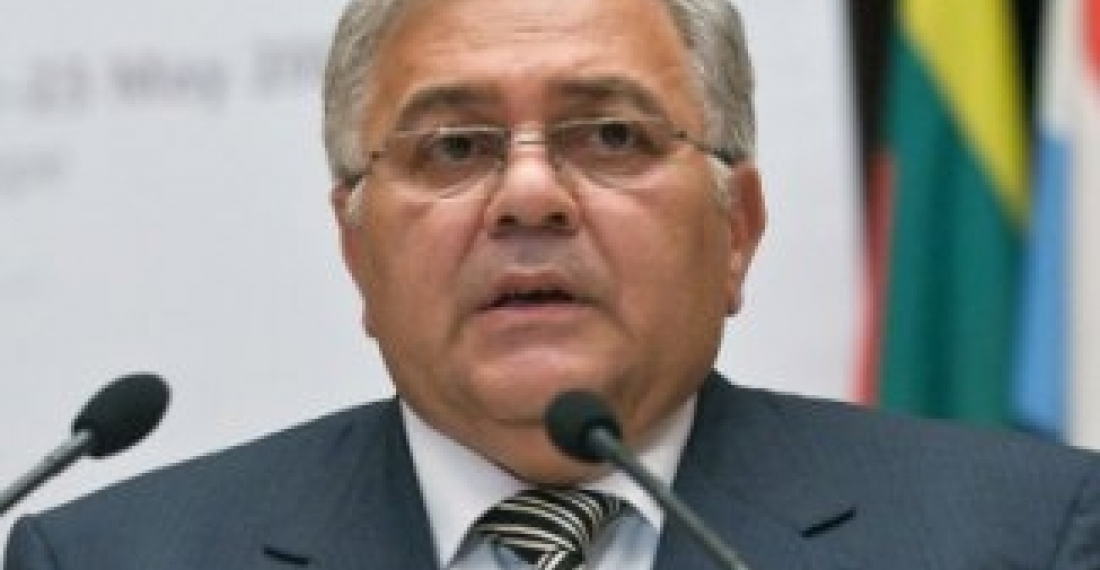БАКУ, 27 ноя – 1NEWS.AZ
Армяно-азербайджанский, нагорно-карабахский конфликт является серьезным препятствием на пути динамичного развития региона и создает серьезную угрозу для международной стабильности и безопасности.
Как сообщает 1news.az, об этом спикер Милли Меджлиса, председатель Парламентской ассамблеи Черноморского экономического сотрудничества (ПАЧЭС) Октай Асадов заявил на начавшем во вторник работу в Баку сороковой пленарной сессии ПАЧЭС.
«Нерешенный до сих пор ряд проблем, в том числе армяно-азербайджанский, нагорно-карабахский конфликт, в который мы были насильно вовлечены, превратился в большое препятствие на пути динамичного развития региона и, одновременно, создает серьезную угрозу для международного мира и безопасности», - подчеркнул он.
О.Асадов выразил уверенность, что все конфликты в скором времени найдут свое решение на основе норм и принципов международного права, особенно, с соблюдением основного принципа неприкосновенности границ и территориальной целостности государств.
«Верим, что превращение нашего региона в зону мира и стабильности отвечает интересам всех проживающих здесь народов», - подчеркнул спикер Милли Меджлиса.
По словам председателя ПАЧЭС, региональная интеграция играет важную роль в процессах политического развития в современном мире.
Он отметил, что в центре этого процесса находятся создаваемые международными организациями возможности для сотрудничества, а эффективное сотрудничество между государствами открывает путь к развитию политических, экономических, культурных и других связей.
«С удовлетворением хочу отметить, что реализуемое в рамках ОЧЭС деловое сотрудничество способствует еще большему укреплению политических связей между членами организации и, в целом, решению многих проблем», - сказал О.Асадов.
Как отметил председатель парламента Азербайджана, Милли Меджлис придает большое значение развитию сотрудничества и партнерства в рамках ПАЧЭС.
По его словам, Милли Меджлис 6 месяцев назад принял председательство в ПАЧЭС, и «за этот период деятельность ПАЧЭС еще более усовершенствовалась, вырос ее международный авторитет».
«Без объединения усилий государств сегодня невозможно решить большинство существующих в различных регионах планеты политических, экономических, экологических и других проблем», - подчеркнул О.Асадов.
Спикер Милли Меджлиса отметил важность развития тесного сотрудничества между государствами-членами ПАЧЭС в условиях растущей роли региона в мировой политике и экономике.
«Реализованные совместно членами организации экономические проекты, особенно, нефтепровод Баку-Тбилиси-Джейхан и газопровод Баку-Тбилиси-Эрзурум, готовящаяся к запуску в эксплуатацию железная дорога Баку-Тбилиси-Карс, а также проект газопровода TANAP и другие проекты демонстрирует большой потенциал, имеющийся в Черноморском регионе.
Верю, что со временем растущее число этих проектов приведет к превращению нашего региона в зону процветания и прогресса», - подчеркнул председатель ПАЧЭС.
В заключении спикер зачитал обращение Президента Азербайджана Ильхама Алиева к участникам сороковой пленарной сессии ПАЧЭС.
Расим Бабаев, Ф.Б.







